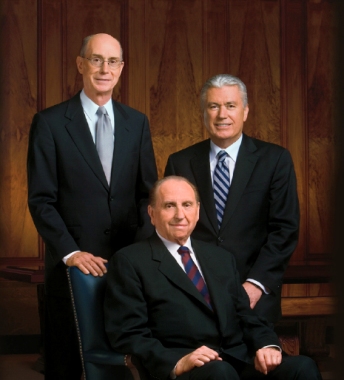There’s a fantastic little movie from the late 90’s called Mystery Men, featuring a ragtag band of second (or maybe even third) rate superheroes. The motivating plot piece is the first rate superhero, Captain Amazing, who locks up his arch-nemesis, Casanova Frankenstein, and now finds himself… irrelevant.
So, he springs him from prison. After all, what’s a superhero without a supervillain?
The archetypal enemy motif is embedded deep in the soul of Christianity. Good vs. evil. Christ vs. Satan. The mythological standoff of enemies helps you define your existence.
As an apostate, I have a complicated relationship with the faithful. This is especially true with the faithful who are willing, want even, to engage. Let’s hypothetically embody the faithful into one symbolic person, and let’s call him Mike.
First of all, I’m not sure who is attacking and who is defending. Do I want to attack Mike? Does he want to attack me? Am I defending my choices or decrying his? Because his choices used to be mine, I feel… advanced. But he is sure of himself. I don’t feel remiss in saying that he hopes to help me find a spark of my former feelings; to help me remember it. He wants to rescue the lost sheep; bring me back to the fold.
What do I want? If I am honest with myself, there are primal moments when I really hope to see his testimony vaporize like mine did. This is not simply spite. This is not a malevolent desire to drag people down. Quite the opposite; I am happy to be where I am, and would be glad to help people see the light.
And there’s some spite.
And (more) there’s a desire for validation; a desire to have someone say, “Oh, I get it.”
Do I really want that? Mike LOVES the Church. He doesn’t love it mildly. Mike is passionately involved in the work. He sees himself as a soldier in the Lord’s army, and he relishes it. Somehow, I guess it works for him.
So, if I was the cause of taking that away, I don’t know that I would feel any glory in the victory. What would I gain? Nothing. An empty cup.
However, we still engage. It’s not like I’m pursuing him. He baits me. He wants to engage. He wants the tension and the discourse, and so do I.
In the engagement I have the chance to seriously examine my position; I can look for the places where I don’t have a good answer. I can look for the chinks.
We engage in a battle that, for me, contains an additional layer of conflict (I don’t think the same is true for him. He would be exultant to “win” me back).
 I think I have a different view of the stakes. I see us fighting with real weapons, and see that there is a real possibility of delivering a mortal blow to his vision of life. He thinks there’s no way that could happen. In a conversation (fraught with tension) with my bishopric, one of the counselors told me confidently, “We can handle it.”
I think I have a different view of the stakes. I see us fighting with real weapons, and see that there is a real possibility of delivering a mortal blow to his vision of life. He thinks there’s no way that could happen. In a conversation (fraught with tension) with my bishopric, one of the counselors told me confidently, “We can handle it.”All I could say in return, “I thought I could, too.”
I engage in mortal combat, in a fight I don’t really want to win, with a person who is ignorant of the danger of the weapons in hand. (Is that arrogance? I don’t want it to be, but would be willing to concede that it may be.)
Nevertheless, I engage with no quarter. And when the battle is on, all of this nice perspective I have right now, goes right out the window, and then, I want blood; then I want concession, and defeat; then I want the moment of painful realization.
I like Mike in spite of myself. We share a culture that I no longer embrace. I spend my time picking it apart, examining it under a microscope. I like Mike because he is sincere. I like him because he is willing to stand up. I like him because he is willing to engage. And ironically, I worry about him.
I got lucky. Unlike many apostates, I didn’t get a divorce. I’m willing to engage, but worry about the consequences.
I’m conflicted in my conflict.
I guess that’s just the way it is.















.jpg/220px-Day_18_-_Still_Eating_The_Green_Jello_(gifrancis).jpg)
